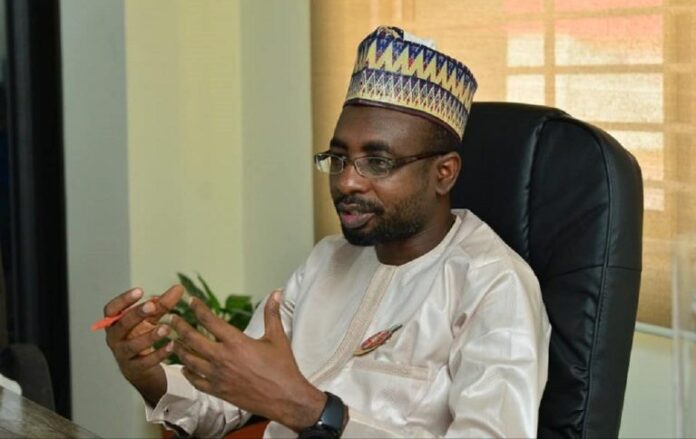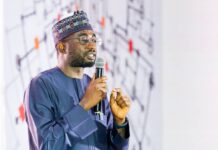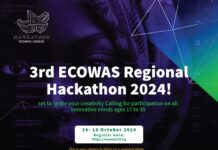Powering Nigeria’s Digital Literacy Journey
By Inyene Ibanga
TECH DIGEST – The acquisition of digital literacy and skills is becoming a necessity. The exposure to digital literacy empowers more citizens to safely benefit from, participate in, and contribute to the rapidly evolving digital world. It is critical to personal and national development.
Digital literacy refers to those skills you need to live, learn, and work in a society where communication and access to information is predominantly through digital technologies and innovations. These are the internet platforms, social media, and mobile devices.
It covers a range of abilities to use digital devices, communication applications, and networks to access and manage information. Through it people are able to find effective and creative self-fulfilment in life and work.
Essential components of digital skills are communicating, handling information and content, problem-solving, and staying safe and legal online.
This enhances the knowledge of digital tools for content creation, critical thinking, and social engagement with others in cyberspace.
A few examples of basic digital literacy skills includes using your phone to check emails, creating an online profile on a social media platform, using an online search engine to find the answer to a question, and evaluating online resources for the verification of information.
These functional skills to make basic use of digital devices and online applications form a critical part of a new set of literacy skills in the digital era.
However, the major digital transformation catalysts such as Artificial Intelligence (AI), blockchain, machine learning, big data analytics, and other emerging technologies are driving capacity building and skills development for the digital economy.
Nigeria, like many other developing nations, is beginning to come to terms with the disruption caused by the COVID-19 pandemic. For stakeholders in the country’s digital technology sector, it is widely accepted that digital literacy has become a must-have towards the development of indigenous capacity for active participation in the digital economy.
Stakeholders have been harping on the importance of creating a digital literacy framework towards building a sustainable platform for competitive indigenous content to fill the skills gap in the ICT sector.
They are, however, optimistic that a robust implementation of the National Digital Economy Policy and Strategy (NDEPS 2020-2030) and other policy documents hold the key to growing Nigeria’s digital technology ecosystem.
Several digital technology-focused non-governmental organisations are undertaking initiatives for expanding digital literacy and skills to the unserved and underserved communities and segments of the population.
Technology for Social Change and Development Initiative (Tech4Dev), a not-for-profit organisation, and the Foreign Commonwealth and Development Office (FCDO), are partnering to carry out basic digital literacy training for rural community clusters.
The High-tech Centre for Nigerian Women and Youths organised a national technology summit for the purpose of equipping more Nigerians with enduring digital technology skills to enable them to thrive in a new normal digital economy.
Read Also:
Other digital technology-focused NGOs have employed innovative use of digital technologies to create and expand about 20,000 small businesses, trained over a million youth and women and encouraged economic sustainability in various communities across the country.
They include the Youth for Technology Foundation, Centre for Information Technology and Development (CITAD), Paradigm Initiative, among a few others.
To further boost digital literacy in Nigeria, the Africa Digital Economy Forum (ADEF) has declared its support for the forthcoming Nigeria Teen Cyber Festival (ngTeenCyberFest 2021) as a platform to develop the capacity of the youth for handling the responsibility of driving the continent’s digital economic future.
ADEF maintains that “the capacity of Africa’s young population to drive transition to the digital economy not in doubt. Africa’s steady transition to technology-enabled economies is not in doubt. What must not also be in doubt is the capacity of its young population to drive and sustain this transition for the common good of everyone.”
As such, the National Information Technology Development Agency (NITDA), the regulator of the IT sector, has been saddled with the responsibility of promoting and facilitating digital literacy and skills, as one of its core mandates.
Under the supervision of the Ministry of Communications and Digital Economy, NITDA has initiated interventions programmes to inspire the development of innovative solutions across all facet of national life as one of its strategic pillars.
In pursuit of this critical objective, NITDA recently commenced digital literacy and skills programmes for the 36 States and the Federal Capital Territory (FCT) in fulfilment of the NDEPS for a Digital Nigeria, in line with the digital literacy pillar of NDEPS.
Designed as one of the implementation strategies of the NDEPS, the Digital States programme is targeted at training 20,000 youths in specific areas of digital literacy skills to facilitate Nigeria’s transition to the digital economy.
The first phase of the programme commenced in March with Gombe, Kano, Lagos and Rivers as beneficiary states. Schedule for the subsequent phases of the programme and the beneficiary states will be announced on a continuous basis.
To achieve digital literacy and skills, the pivotal role of government and state actors in setting up the fundamental principles for inclusive and equitable digital skills development cannot be over-emphasised.
Consistent, integrated, comprehensive and consistent responses from policymakers, regulators and other key actors should prioritise policy actions geared towards providing sustainable IT programmes and capacity development initiatives for disadvantaged groups, the re-skilling of adults, youths and children.
Stakeholders in the public and private sectors have to collaborate in order to help promote inclusive and equitable education and lifelong learning for all, and ensure that everyone has relevant digital skills to gainfully participate in the digital economy.
I am confident that stronger collaborative efforts between all government agencies and the industry stakeholders in building adequate digital capacity would transform Nigeria into a major exporter of skilled personnel in this regard in the nearest future.
Inyene Ibanga is Managing Editor TechDigest writes from Wuye District, Abuja



















